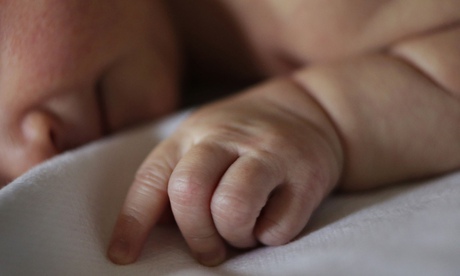
Mothers should wait at least 18 months after giving birth before having another child in case their next baby arrives dangerously early, experts say.
Research has found that women who give birth again within 18 months of having a baby, especially within a year, are much more likely to have a very premature child – and are also running a higher risk of having a child with a birth defect or childhood behavioural problems.
However, the Royal College of Obstetricians and Gynaecologists (RCOG), which represents NHS maternity doctors, said women should leave it only a year before becoming a mother again, and older women could do so sooner to try to beat their declining fertility.
Debate about "birth spacing" – how soon mothers should give birth again – has been prompted by a study of 454,716 women who gave birth to a single baby in Ohio, in the United States, between 2006 and 2011, published in the RCOG's journal BJOG: An International Journal of Obstetrics and Gynaecology.
It found that women who had another baby after what the authors called too short an "interpregnancy interval" – under 18 months, but especially under a year – were much more likely give birth to a premature child, born before 39 weeks' gestation, compared with those who left having another child at least 18 months. At least a year and a half between children is "optimal birth spacing", they say.
In all, the next child of 53.3% of those who gave birth within a year arrived before 39 weeks – compared with 37.5% of those who did so after at least 18 months.
Similarly, one in five (20.5%) of the women who gave birth again within a year had their child before 37 weeks – the time before which medical complications are much more likely. This was almost three times as many as the 7.7% of those who waited a year and a half or more before having another baby who had their child before 37 weeks.
The risk of premature delivery among those with an inappropriate birth interval is so great that women should be advised by health professionals how long they should leave it before having another baby, say the authors, who are led by Emily DeFranco, assistant professor of maternal-foetal medicine at the University of Cincinnati College of Medicine in Ohio.
Dr Patrick O'Brien, a consultant obstetrician and RCOG spokesman, said: "This is a very interesting study and emphasises the importance of appropriate birth spacing and the potential risks of preterm birth as a result of inadequate spacing between pregnancies.
"As obstetricians, we would generally recommend that a woman should wait at least 12 months in between pregnancies. However, other factors and individual circumstances must be taken into account, such as maternal age or pre-existing health conditions. These confounding factors may determine whether a woman chooses to conceive slightly earlier than recommended."
Women concerned about when to try to conceive a subsequent baby should talk to an obstetrician or midwife, O'Brien added.
The National Institute for Health and Care Excellence, which advises the NHS on what treatments are most effective, said it had no guidelines on the subject.

